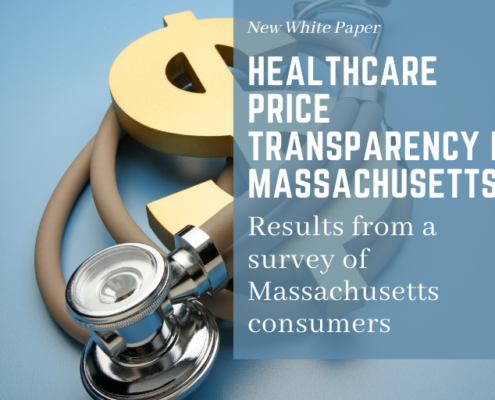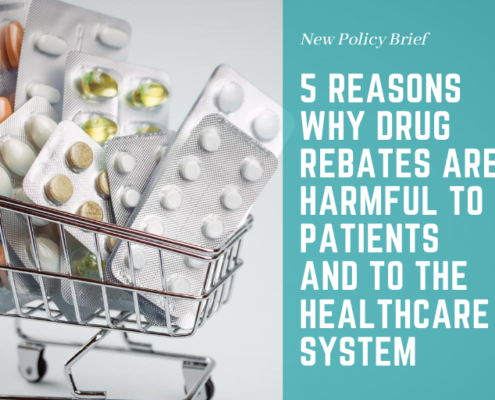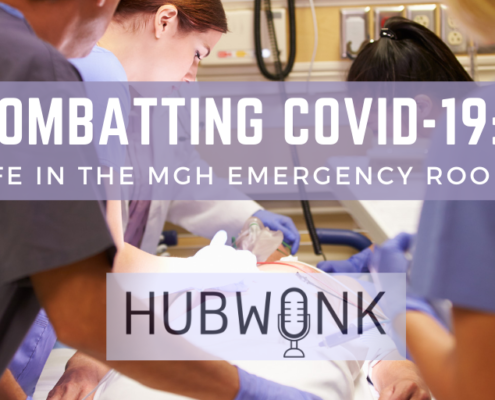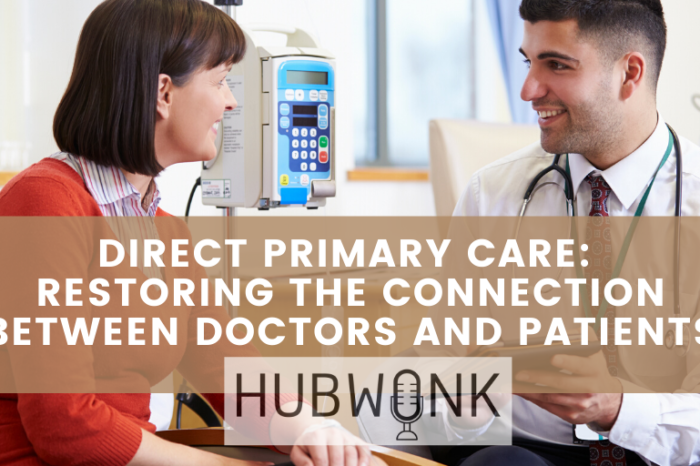Hubwonk Ep. 12: Direct Primary Care: Restoring the Connection between Doctors and Patients
/0 Comments/in Featured, Healthcare, Podcast Hubwonk /by Editorial Staff Share on Facebook
Share on Twitter
Share on
LinkedIn
+
Join Hubwonk Host Joe Selvaggi and Pioneer Institute’s Senior Fellow in Healthcare Josh Archambault as they discuss the benefits of direct primary care. In this episode, Dr. Jeffrey Gold shares his vision for the future of primary care and his passion for delivering care the way it was intended – through trust, openness, and investing in the doctor-patient relationship.
 Jeffrey S. Gold, MD, is owner and primary care physician at Gold Direct Care in Marblehead, Massachusetts. He earned his undergraduate degree at University of Pennsylvania and his medical degree at the University of Massachusetts Medical School. The primary care physicians in his practice serve over 600 patients.
Jeffrey S. Gold, MD, is owner and primary care physician at Gold Direct Care in Marblehead, Massachusetts. He earned his undergraduate degree at University of Pennsylvania and his medical degree at the University of Massachusetts Medical School. The primary care physicians in his practice serve over 600 patients.
Get new episodes of Hubwonk in your inbox!
Related Research:

Study Calls for Better Reporting on Impact of COVID-19 in Eldercare Facilities
Over time, the Massachusetts Executive Office of Health and Human Services and Department of Public Health (DPH) have improved reporting about cases and deaths from COVID-19 in state-regulated eldercare facilities, but flaws and omissions remain and should be corrected, according to a new study published by Pioneer Institute.

New Analysis: ICER Framework Ignores Patient Preferences, Innovation & Societal Benefits in Evaluating Cost-Effectiveness of New Cancer Treatments
Pioneer Institute today released a new analysis, The QALY and Cancer Treatments: An Ill-Advised Match, that examines the alarming methodological and contextual shortcomings of the Quality Adjusted Life Years (QALY)-based methodology in evaluating new cancer therapies. The Pioneer Institute analysis reveals five specific problems with ICER’s evaluation of cancer treatments and demonstrates the urgent need to prohibit the use of the QALY amid trends in rapid cancer innovations and personalized medicine.
Study: Massachusetts Should Embrace Direct Healthcare Options
Especially in the COVID era, many are looking to alleviate the increased burden on the healthcare system. One solution is direct healthcare (DHC), which can provide more patient-centered care at affordable prices and is an effective model to increase access to care for the uninsured, underinsured and those on public programs like Medicaid, according to a new study published by Pioneer Institute.

Survey: Consumers Want Healthcare Price Information, But Few Realize It’s Available
Great strides have been made to increase healthcare price transparency through online cost estimator tools and a state law that requires providers to give out price information. Yet despite the eagerness of consumers to access prices and out-of-pocket costs, many are unaware that such information is available and don’t know how to access it, according to survey results published by Pioneer Institute.

Study: Growth of Antibiotic-Resistant Infections Could Have Massive Human, Financial Costs
The world was blindsided by COVID-19, but a new Pioneer Institute study finds that even as we continue to wrestle with the pandemic, another threat looms that scientists have long known about but the nation has thus far failed to address: the growth of antibiotic-resistant infections.
“Market dysfunction and perverse Medicare reimbursement rates have led to a growth in infections that resist antibiotics,” said Gunnar Esiason, author of “Antimicrobial Resistance: Learning from the current global health crisis to prevent another one.” If we don’t solve this problem, the human and economic costs are likely to be astronomical.”

Study: Growing Drug Rebates Hurt Both Consumers and Healthcare System
Ever-larger rebates are distorting the market for branded drugs and producing outcomes that often benefit neither consumers nor the healthcare system, according to a new study published by Pioneer Institute.
Study: Shift from Highest-Priced Healthcare Providers Would Generate Tremendous Savings
Consumers in just one Massachusetts county could have saved nearly $22 million in a single year and $116.6 million adjusted for inflation over four years if they switched from using the most expensive providers for 16 shoppable healthcare services to those whose prices were closer to average, according to a new study published by Pioneer Institute.

Pioneer Urges Future COVID-19 Study and Recommendations Task Force to Consider Impact on Nursing Home Residents
After over 5,000 people have died of COVID-19 in Massachusetts nursing homes, Pioneer Institute is issuing an open letter to the state’s future COVID-19 health equity task force that outlines an extensive list of recommendations on infection control and preparedness in eldercare facilities.

Open Letter: COVID-19 Study and Recommendations Task Force Established Pursuant to Massachusetts Bill H.4672
Pioneer hopes the members of this important task force will be appointed as soon as possible and that they will look into recommendations to address Covid-19 among the aged and in the state’s nursing homes. Read our Open Letter.

Combatting COVID-19: Life in the MGH Emergency Room
Join host Joe Selvaggi and Pioneer Senior Fellow Josh Archambault as they talk with Dr. David King about the experience of being in emergent care during a pandemic and lockdown. They explore the challenges of coping with a poorly understood virus during a lockdown, all while continuing to serve the sick.

Study Finds Pandemic Likely to Negatively Impact Biopharmaceutical Sector
Contrary to conventional wisdom that says the coronavirus pandemic will generally benefit biopharmaceutical companies, a new Pioneer Institute study finds many companies will emerge from the pandemic commercially weaker, dealing with delays in new product launches and with fewer resources to invest in research and development.

National Study Finds Most States Lack Healthcare Price Transparency Laws
At a time when the coronavirus pandemic has caused massive shifts in state policies on telehealth and scope of practice in healthcare, a new Pioneer Institute study underscores that most of the 50 states continue to suffer from weak laws regarding price transparency. The study identified states that have laws that require carriers, providers or both to provide personalized cost information to consumers before obtaining healthcare services. Fully 33 states placed in the lowest of the three broad analytic tiers on the strength of their state healthcare transparency laws.



